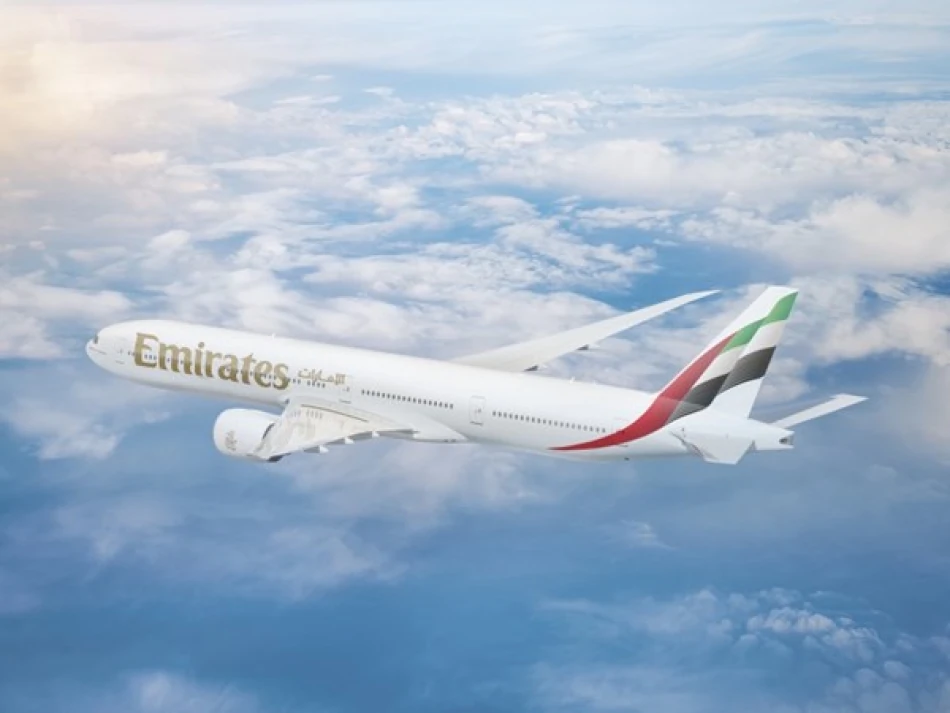
Emirates Airline Debuts Upgraded Boeing 777 on Madrid Route
Emirates Elevates Spain Route with Fully Renovated Four-Class Boeing 777
Emirates Airlines will deploy its newly refurbished four-class Boeing 777 aircraft on the Dubai-Madrid route starting September 16, marking Spain's first destination to receive the carrier's most advanced cabin configuration. The move signals Emirates' strategic focus on premium European markets as the aviation industry recovers and competition for high-yield passengers intensifies.
Premium Product Launch Targets High-Value European Market
The upgraded aircraft will operate daily on flight EK143, departing Dubai at 2:30 PM and arriving in Madrid at 8:20 PM, with the return flight EK144 leaving Madrid at 10:05 PM and reaching Dubai at 7:10 AM the following day. Madrid becomes the testing ground for Emirates' enhanced European strategy, leveraging Spain's recovering tourism sector and strong business travel demand.
The timing is strategic. As European travel rebounds post-pandemic, airlines are racing to capture premium passengers willing to pay higher fares for enhanced experiences. Emirates' decision to prioritize Madrid over other Spanish destinations reflects the capital's importance as both a business hub and gateway to Latin America.
Four-Class Configuration Sets New Competitive Standard
The renovated Boeing 777 features significant cabin improvements across all service classes. The new business class adopts a 1-2-1 seat configuration with fully flat beds, addressing the privacy and comfort demands that have become standard expectations among corporate travelers. This layout ensures every passenger has direct aisle access—a feature increasingly critical for premium positioning.
Premium Economy Expansion Strategy
The enhanced premium economy cabin, featuring cream leather seats with extended legroom and adjustable headrests, represents Emirates' response to the growing middle-premium segment. This class has proven particularly successful for long-haul carriers, capturing passengers willing to pay moderate premiums for significantly improved comfort.
Massive Fleet Investment Signals Long-Term Confidence
Emirates' renovation program represents one of aviation's largest fleet upgrade initiatives, with 61 aircraft already completed—31 Airbus A380s and 30 Boeing 777s—and plans to refurbish over 220 aircraft total. This $2 billion-plus investment demonstrates remarkable confidence in premium travel recovery and long-term growth prospects.
The scale dwarfs similar programs by competitors. While other Gulf carriers like Qatar Airways and Etihad have focused on selective upgrades, Emirates' comprehensive approach suggests a belief that premium differentiation will drive market share gains as travel patterns normalize.
Market Implications for European Aviation
For European carriers, Emirates' enhanced Madrid service raises competitive pressure on the lucrative Dubai-Spain corridor. The four-class configuration directly challenges traditional European full-service carriers who typically operate three-class systems on similar routes.
The move also signals Emirates' broader European strategy evolution. Rather than simply adding frequencies, the carrier is upgrading product quality to command higher yields—a shift that could influence how other Gulf carriers approach mature European markets.
From an investor perspective, the Madrid deployment serves as a crucial test case. Success here could accelerate similar upgrades across Emirates' European network, while underwhelming performance might force strategy recalibration. The Spanish route's performance will likely influence Emirates' broader European capacity allocation decisions through 2024 and beyond.
Most Viewed News

 Layla Al Mansoori
Layla Al Mansoori






